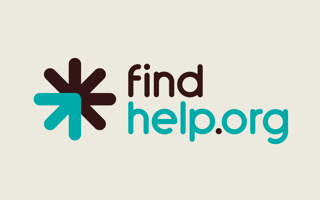[ibimage==34172==Original==none==self==ibimage_align-center]
When Erine Gray was in his 20s, he became his mother's legal guardian. She had been diagnosed with encephalitis, and Erine's father was no longer able to take care of her. Erine realized his only source of financial support would be from social services from the community or government, but when he tried to find programs to enroll in, he felt overwhelmed and lost.
Years later, after earning his master’s with the assistance of financial aid and scholarships, Gray served as a human-services consultant for the State of Texas. He spoke to countless needy local residents, only to discover that many shared his frustration when it came to finding programs that could offer support.
Determined to simplify the process, Gray founded Findhelp, a specialized search engine designed to connect people with the social-services programs they need. Named after a fictional relative who “won’t judge you when you get in trouble,” Findhelp lists assistance programs by region in such areas as food, housing, transit, and health care. Users can view the services each program provides (like credit counseling, addiction and recovery, emergency shelter), the groups who qualify (such as the homeless, HIV patients, domestic violence survivors), and other pieces of information about each option.
“Imagine a single mom who needs to find housing for her and her children, and maybe this is the first time she has found herself in this situation. How does she know what short- and long-term housing programs exist? And if she finds one, to get enrolled she may have to take off work, take a bus across town to fill out a paper application and then come back again because she is told she needed a pay stub. All this for a program she may not qualify for,” said vice president of sales Chris Dunkin.
“What often happens is people give up trying to find help and get stuck in a situation that is not good for them and not good for society as a whole. This is the problem we are trying to solve,” he continued.
[ibimage==34173==Original==none==self==ibimage_align-center]
To flesh out the roster of programs, Gray said, Findhelp uses software that finds and updates information on free and reduced-cost social programs. Staff members then verify the agency information and fill in any missing blanks.
With a user total of over 115,000 and tens of thousands of programs nationwide, Findhelp has gathered a significant amount of data that can be shared to improve city and government programs. Using this data, the startup has partnered with the City of Austin Health and Human Services Department to identify and address gaps between supply and demand in social services.
“Every time someone searches for help on our site, we track what is being searched for anonymously. This is the only demand-side data that city leaders or foundations can view to have a better sense of the needs of at-risk populations,” Dunkin said. “We can see patterns as to what is being searched for by zip code and get a sense for trends. For instance, higher demand for food assistance in a suburb as lower-income populations get pushed out of the city.”
Dunkin said Findhelp is in the process of national expansion, working with organizations such as the AARP, the Robin Hood Foundation of New York City, and Critical Mass (formerly the Young Adult Cancer Alliance).
“We’d like to be doing what we’re doing in all 50 states this year,” he said. “If we can help more people find a better situation more quickly, then we’d call that a success. We want to help community leaders better understand the needs in their community, so together we can help more people.”




